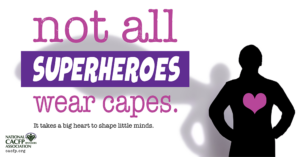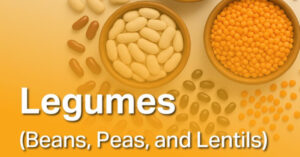Posts Tagged ‘cacfp’
White House Releases Make Our Children Healthy Again Assessment
On May 22, 2025, the White House published the Make Our Children Healthy Again Assessment which provides an overview of the current state of child health in the United States. The Assessment was created in response to an executive order that established the President’s Make America Healthy Again Commission. The Assessment will be used to create a Make Our Children Healthy Again Strategy which is required to be published by August of this year.
Read MoreSpark Curiosity
Curiosity is the key to learning. When you encourage children to ask lots of questions, you’re helping them build their natural curiosity and think like scientists. Our partners at Sesame Street in Communities have great resources to help you encourage curiosity with those in your care.
Read MoreThe Power of the Food Program: Adult Care
Vegas Adult Day Care is an outstanding CACFP operator that is committed to the overall health and wellbeing of the 40 older adults they serve each day. The founder of Vegas Adult Day Care, Myong Kim, began her experience with adult care as the caregiver for her own parents. After moving to Las Vegas, she was drawn to serve the senior population where she saw a need for adult care services. Check out their story!
Read MoreThe Power of the Food Program: Head Start
Acelero Learning Monmouth Middlesex (Acelero) operates eight Head Start centers that serve meals to over 800 children through the CACFP. Food Service Coordinator, Stephanie Manchester, and her team work to ensure that they are providing nutritious meals for all of the children across their eight sites.
Read MoreUnplug and Play
Summer is nearly here, and the school year is winding down. The temptation to swap class time for screen time is strong, but it’s not what children need most. That’s why our partners at Read Aloud 15 Minutes have created summer materials designed to spark creativity and encourage physical activity without relying on screens.
Read MoreFinal Rule: Rescission of Obsolete Data Collection
On May 12, 2025, USDA released a final rule titled Child and Adult Care Food Program: Rescission of Obsolete Data Collection Requirements. The final rule removes section 226.25(g) from the Code of Federal Regulation. This regulation required State agencies to collect and report data related to participating institutions during fiscal years 2006-2009.
Read MoreProvider Appreciation Day
Tomorrow, May 9th, is Provider Appreciation Day! We’ve all heard the phrase “not all superheroes wear capes,” and not to be cheesy, but in this case it is true. Instead of a cape, you may wear an apron, a monitor’s hat, a power of the food program sticker, or an advocate badge. e want you to be supported for the tireless work you do to ensure your community is food and nutrition secure.
Read MoreMajor Allergens: The Big Nine
May is Food Allergen Awareness Month. More than 170 foods have been reported to cause allergic reactions, according to Food Allergy Research & Education (FARE), but the vast majority are caused by the “Big Nine”: milk, eggs, nuts, fish, crustaceans, shellfish, wheat, soy and sesame. Our partners at SNA share information on the nine major food allergens.
Read MoreLegumes: Beans, Peas, and Lentils
Did you know a simple bag of beans could be the key to powering up your CACFP menus? Legumes like beans, peas, and lentils are versatile, affordable superfoods. Regularly consuming legumes may help reduce the risk of obesity, diabetes, heart disease, and certain cancers. Including them as part of your menu can positively impact the health of the children in your care.
Read MoreUsing Federal Funds to Purchase Local Foods
USDA released a memorandum to remind schools, sponsors, and institutions participating in any Child Nutrition Program (CNP) of the many ways they can purchase local foods to serve in Program meals.
Read More









